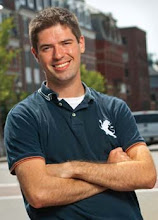Then there are these moments. I look across Adelle's, to a young woman talking to another, perhaps her mother. She cradles a newborn. She rocks the child. She never looks down, and she never ceases the rocking motion. She was there before the child's consciousness, her touch present before his nerves had catalyzed their connection. There was someone holding me, and the child could become me. And the mother could have been my mother, and at some point she was her son -- a stoner moment of contemplation that opens the universe in its inanity.
Then I was driving out to Fort Stark, and a chipmunk ran in front of Neutron Star. Then I saw a boy, a blond boy, a lonely boy, sitting at an empty tennis court. He must have been a wealthy boy. I thought: If this were a novel, I will kill him the next time I drive down this road. Fate might let a baby chipmunk live, but a novelist would not suffer the life of a random kid.
There was a family on the beach. I walked by them to an isolated rock on the jetty, and lay down, and turned off my iPod to listen to the waves, to think. They began to shout and whistle. A little girl came near me and started shouting, "Hey Dad! Dad!"
He was swimming away from shore, near the buoys, towards the riptide and the rocks and the ocean.
"He can't hear you," said the mother. "The high pitch of my whistle might be audible, but..."
He wasn't yet in danger. They wanted him to pose for a picture. This family stood on the jetty all around me and I thought about the typical response, about anyone's response to them: They should leave. They should not exist and be bothersome to me.
Yet it struck me, lying there as an intruder, a stranger, on this family-claimed public beach, that they weren't going anywhere. Their right to existence was quite clearly established. I was the one in danger.
Questions for discussion:
I spent all my Moscow time in bars and cafes, reading and drinking and writing. Why is what was acceptable there seemingly inappropriate here?
Corollary: I wrote so much but there isn't always a clear point in my head. There's always a point. ...Right?
Could Camus have written
L'etranger, or would it have been so important that he had done so, had he not been Pied-noir, but a Parisian?
